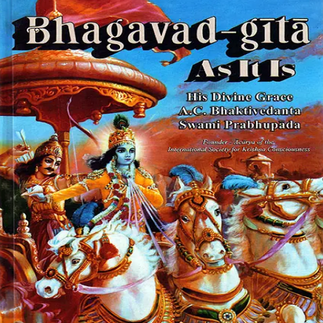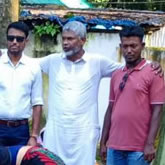Lotus Ministry Trust Bhagavad Gita Classes & Sessions
- Jeffrey Dunan
- Sep 1, 2025
- 10 min read
Updated: Sep 3, 2025
Key Takeaways
Lotus Ministry Trust offers comprehensive Bhagavad Gita classes in rural villages for all levels, from beginners to advanced practitioners, making ancient wisdom accessible in today's world.
These classes emphasize practical application of the Gita's teachings in daily life, helping students navigate modern challenges with timeless spiritual principles.
Participants consistently report significant personal transformations including improved mental clarity, better decision-making skills, and increased emotional resilience.
No prior knowledge is required as courses present the Bhagavad Gita's wisdom as universal teachings applicable across all cultural and religious backgrounds.
The structured learning path includes specialized workshops focusing on specific life areas like relationships, career decisions, and personal growth.
The Bhagavad Gita holds answers to life's most pressing questions. In today's fast-paced world, accessing this ancient wisdom has never been more crucial.
The spiritual journey of understanding the Bhagavad Gita becomes transformative when guided by experienced teachers who can bridge ancient wisdom with modern challenges. At Lotus Ministry Trust, our carefully designed classes make the profound teachings of this sacred text accessible to rural spiritual seekers. Whether they are facing personal dilemmas, seeking deeper meaning, or simply curious about philosophy, these courses provide practical tools for navigating life with greater wisdom and purpose.
Transform Your Life Through Authentic Bhagavad Gita Wisdom
The Bhagavad Gita isn't just another spiritual text—it's a comprehensive life manual that addresses the fundamental questions of existence. What is our purpose? How should we make decisions? What is the nature of reality and our place within it?
These questions transcend time and culture, making the Gita's wisdom as relevant today as it was thousands of years ago. Through structured classes, students discover how these ancient teachings provide remarkable clarity for navigating modern challenges.
Many participants report profound shifts in perspective after just a few sessions. The teachings create a foundation for making wiser choices, managing emotions effectively, and finding meaning beyond material success. Unlike quick-fix approaches to life's problems, the Gita offers sustainable wisdom that grows deeper with continued study and practice.
What the Bhagavad Gita Classes Teach Us Today
At its core, the Bhagavad Gita addresses universal human struggles through the conversation between Krishna and Arjuna on the battlefield. This symbolic setting represents our own internal conflicts and difficult decisions. The teachings cover four main pillars that remain profoundly relevant: dharma (righteous duty), karma yoga (selfless action), bhakti (devotional practice), and jnana (spiritual wisdom). When applied to contemporary life, these principles transform ordinary experiences into opportunities for growth and enlightenment.
The Gita's emphasis on performing one's duties without attachment to outcomes offers a revolutionary approach to work and relationships. Students learn to act with excellence while releasing anxiety about results—a perspective that brings immediate relief in our achievement-oriented culture. The text also provides sophisticated psychological insights into managing the mind, emotions, and ego that modern psychology is only now beginning to appreciate fully.
"The course helped me find clarity and direction in my life. I now approach challenges with a calm mind and a positive attitude." — Recent course participant
Why Lotus Ministry's Approach Makes Ancient Wisdom Accessible
Traditional Bhagavad Gita study often requires years of preparatory knowledge and cultural context. Lotus Ministry Trust breaks down these barriers by presenting the teachings in accessible language without diluting their profound essence. Our courses avoid unnecessary jargon while preserving the authentic spiritual transmission that makes this text so powerful.
Teachers draw connections between ancient concepts and contemporary scenarios, making abstract philosophy immediately practical.
The Complete Course Lineup at Lotus Ministry Trust
Lotus Ministry Trust offers a structured learning path designed to accommodate spiritual seekers at every stage of their journey. Each course builds systematically upon previous knowledge, creating a comprehensive understanding of the Bhagavad Gita's teachings. The curriculum integrates authentic scriptural knowledge with practical application techniques, ensuring students not only understand the concepts intellectually but experience their transformative power in daily life.
Our teachers have dedicated decades to both scholarly study and lived application of these teachings. This balanced approach ensures that philosophical depth is never sacrificed for accessibility, nor practical relevance for academic precision. Each instructor brings unique insights while maintaining fidelity to the traditional lineage of Gita knowledge transmission.

1. Beginners Path: First Steps into Gita Wisdom
The Beginners Path serves as an ideal entry point for those new to the Bhagavad Gita or Eastern spirituality in general. This foundational course introduces key concepts, characters, and context in accessible language without assuming any prior knowledge. Students learn the historical setting of the Gita, its place within larger traditions, and the core philosophical framework that supports its teachings. Special attention is given to clearing common misconceptions that might otherwise hinder deeper understanding.
Beginners also receive practical guidance for establishing a sustainable study routine. Through guided readings, simple contemplative practices, and group discussions, students develop the skills needed for independent exploration of the text. By the conclusion of this course, participants possess a solid conceptual foundation and personal connection to the teachings that prepares them for intermediate studies.
Introduction to key characters and the symbolic battlefield setting
Overview of the three paths: karma yoga, bhakti yoga, and jnana yoga
Basic Sanskrit terminology and concepts (no language proficiency required)
Simple daily practices to integrate teachings into everyday life
Building a personal relationship with the wisdom of the Gita
2. Intermediate Journey: Deepening Your Understanding
The Intermediate Journey takes students beyond fundamentals into a more nuanced exploration of the Gita's philosophical depth. This level examines how different verses interconnect to form a comprehensive worldview and spiritual practice system. Students learn to recognize recurring themes across chapters and understand how seemingly contradictory teachings harmonize within the larger context. Greater emphasis is placed on original Sanskrit terminology to capture subtle meanings that English translations might miss.
At this level, personal application becomes more sophisticated. Participants learn to apply Gita teachings to specific life challenges, relationships, and internal struggles. Regular guided reflections help students identify their dominant gunas (material qualities) and develop strategies for cultivating sattva (clarity and balance). The course includes regular opportunities to discuss real-world applications with teachers and peers.
Intermediate students also explore various commentarial traditions, gaining exposure to how different spiritual lineages have interpreted key passages. This comparative approach deepens appreciation for the text's richness while helping students discern which interpretive frameworks resonate most with their own spiritual inclinations.
3. Advanced Study: Mastering Complex Philosophies
Advanced courses delve into the Bhagavad Gita's most profound philosophical concepts and their implications for spiritual realization. Students examine subtle distinctions between consciousness and matter, the nature of the self beyond body and mind, and the relationship between individual consciousness and the Supreme. These sessions require careful analysis of Sanskrit verses and terms, with detailed attention to grammatical and contextual nuances that reveal deeper layers of meaning.
Comparative study of major commentarial traditions (Advaita, Dvaita, Vishishtadvaita)
Exploration of metaphysical concepts like prakriti, purusha, and the three gunas
Analysis of the Gita's teachings on time, karma, and the cosmic manifestation
Integration with other key Vedantic texts for comprehensive understanding
Advanced meditation practices based on Gita teachings
At this level, participants engage with challenging philosophical questions that have occupied great thinkers throughout history. What is the nature of free will in relation to divine will? How does one reconcile action in the world with the pursuit of transcendence? What is the relationship between devotional practice and philosophical knowledge? Through guided inquiry and contemplation, students develop their own authentic understanding while respecting traditional interpretations.
Advanced students are encouraged to undertake independent research projects exploring specific aspects of the Gita that align with their interests and spiritual questions. These projects often become transformative journeys that bridge scholarly understanding with personal realization, culminating in presentations that benefit the entire learning community.
Real-Life Benefits From Regular Bhagavad Gita Classes
The transformation that occurs through dedicated study of the Bhagavad Gita extends far beyond intellectual understanding. Regular engagement with these teachings creates tangible shifts in how students experience and respond to life's challenges. While the ultimate spiritual benefits unfold gradually over years of practice, many participants report immediate improvements in several key areas of their lives within just weeks of beginning structured study.
These practical outcomes reflect the Gita's emphasis on applied wisdom rather than mere theoretical knowledge. As Krishna instructs Arjuna, true understanding manifests through changed behavior and perspective, not simply accumulated information. The following benefits consistently emerge across diverse student populations, regardless of cultural background, religious affiliation, or prior spiritual experience.
Mental Clarity and Stress Reduction
Perhaps the most commonly reported immediate benefit is a significant reduction in mental turbulence. The Gita's teachings on the nature of the mind and practical techniques for mastering it provide students with effective tools for quieting internal chatter and reducing anxiety. By learning to observe thoughts without being controlled by them, practitioners develop a centered awareness that remains stable amid life's inevitable fluctuations.
This mental clarity translates directly into decreased stress levels. Students learn to distinguish between productive concern and unnecessary worry, channeling their mental energy more efficiently. Many report improved sleep quality, reduced physical tension, and greater overall well-being within just a few weeks of implementing basic Gita practices. This foundation of mental stability creates space for deeper spiritual insights to emerge naturally.
"Before studying the Gita, my mind was constantly racing with worries about the future. Now I've learned to stay present and trust the process. The difference in my stress levels is remarkable, and people around me have noticed the change." — Workshop participant
Improved Decision-Making Skills
The Bhagavad Gita offers a sophisticated framework for ethical decision-making that transcends rigid rules or situational ethics. Through studying concepts like dharma (righteous duty), students develop nuanced discernment about right action in complex situations. This proves invaluable in navigating personal and professional challenges where multiple values may seem in conflict.
Course participants consistently report greater confidence in making difficult choices, along with reduced second-guessing after decisions are made. They learn to consider multiple perspectives, identify underlying principles rather than just immediate outcomes, and maintain integrity even when under pressure. The Gita's emphasis on performing appropriate action while relinquishing attachment to results creates a powerful approach to decision-making that combines principled determination with psychological freedom.
Clarity about personal values and priorities in complex situations
Ability to act decisively without being paralyzed by uncertainty
Reduced anxiety about outcomes beyond one's control
Greater alignment between actions and deeper purpose
Skill in discerning which factors deserve consideration in different contexts

Building Emotional Resilience
Life inevitably brings both triumph and disappointment, gain and loss. The Gita provides profound insights into maintaining equanimity through these natural fluctuations. Students learn to recognize the impermanent nature of all circumstances while developing steady awareness of what remains unchanging. This perspective dramatically transforms how they experience life's ups and downs.
Many participants report newfound emotional stability during challenging life events—whether professional setbacks, relationship difficulties, or health concerns. Rather than being overwhelmed by immediate reactions, they access a deeper perspective that allows them to respond thoughtfully rather than react impulsively. This emotional resilience doesn't mean suppressing authentic feelings, but rather experiencing them with awareness and balance.
The practices taught in our courses help students recognize emotional patterns that previously controlled their behavior. By understanding the relationship between thoughts, emotions, and actions as described in the Gita, they develop greater freedom to choose constructive responses even during intense emotional states. This skill proves invaluable in both personal relationships and professional interactions.
Finding Purpose Beyond Material Success
Perhaps the most profound benefit reported by students is a deepening sense of meaning and purpose that transcends conventional definitions of success. The Bhagavad Gita addresses humanity's fundamental questions about existence, offering a vision of life that integrates material responsibilities with spiritual fulfillment. Through studying these teachings, many find resolution to the inner conflict between worldly ambitions and deeper aspirations.
Participants discover how their unique talents, circumstances, and responsibilities can become vehicles for spiritual growth rather than obstacles to it. The Gita's teaching of the path of selfless action transforms ordinary work into sacred service. Students learn to approach their work-related and personal obligations with renewed dedication and integrity while simultaneously developing detachment from ego-driven outcomes.
This integration of material and spiritual dimensions creates a life that feels both purposeful and authentic. Many students report that activities they previously found draining become sources of fulfillment when approached with this new perspective. Rather than seeking escape from worldly responsibilities, they discover how these very circumstances provide the perfect conditions for their spiritual evolution.
Frequently Asked Questions
As you consider whether Lotus Ministry Trust's Bhagavad Gita classes align with your spiritual journey, you likely have questions about the practical aspects of participation. Below, we address the most common inquiries from prospective students. Our goal is to provide transparent information that helps you make an informed decision about joining our learning community.
Remember that these courses are designed to meet students wherever they are on their spiritual path. The flexible format accommodates diverse backgrounds, learning styles, and life circumstances while maintaining the integrity of the teachings. If you have questions not addressed here, our team welcomes your direct inquiries.
Many people hesitate to explore unfamiliar spiritual traditions fearing they lack necessary background knowledge. Rest assured that our courses are structured to be accessible regardless of your previous exposure to Eastern philosophy or religious studies.
Do I need any prior knowledge of Sanskrit to join these classes?
No prior knowledge of Sanskrit is required to benefit fully from our courses. The Bhagavad Gita contains universal wisdom that transcends cultural and religious boundaries. Our beginner courses provide all necessary historical and philosophical context, introducing concepts gradually with clear explanations of unfamiliar terminology. The teachings are presented as practical wisdom for living rather than as religious doctrine requiring specific beliefs.
Many students who initially worry about their lack of background knowledge discover that this fresh perspective actually becomes an advantage. They approach the teachings without preconceptions, often recognizing profound connections to their own life experiences and spiritual intuitions.
Teachers take special care to explain Sanskrit terminology in accessible language, focusing on the experiential understanding of concepts rather than mere intellectual familiarity. When philosophical complexity arises, it's presented in digestible portions with plenty of real-world examples to illustrate abstract principles. The emphasis remains on practical application rather than scholarly expertise.
For those who do have previous exposure to philosophy, our courses offer opportunities to deepen this foundation while correcting common misunderstandings that sometimes arise from partial or decontextualized study. The systematic curriculum ensures that both newcomers and experienced students develop a comprehensive understanding of this profound text.
How much time should I commit each week for meaningful progress?
We encourage students to approach their study commitment realistically, recognizing that consistency matters more than quantity. Those with limited time can still participate meaningfully by focusing on core sessions and gradually expanding their engagement as circumstances permit.
Are the teachings presented from a specific philosophical tradition?
Our primary presentation follows the bhakti tradition's understanding of the Gita, emphasizing devotional practice alongside philosophical knowledge. For more insights, explore the Bhagavad Gita teachings at Lotus Ministry Trust.









